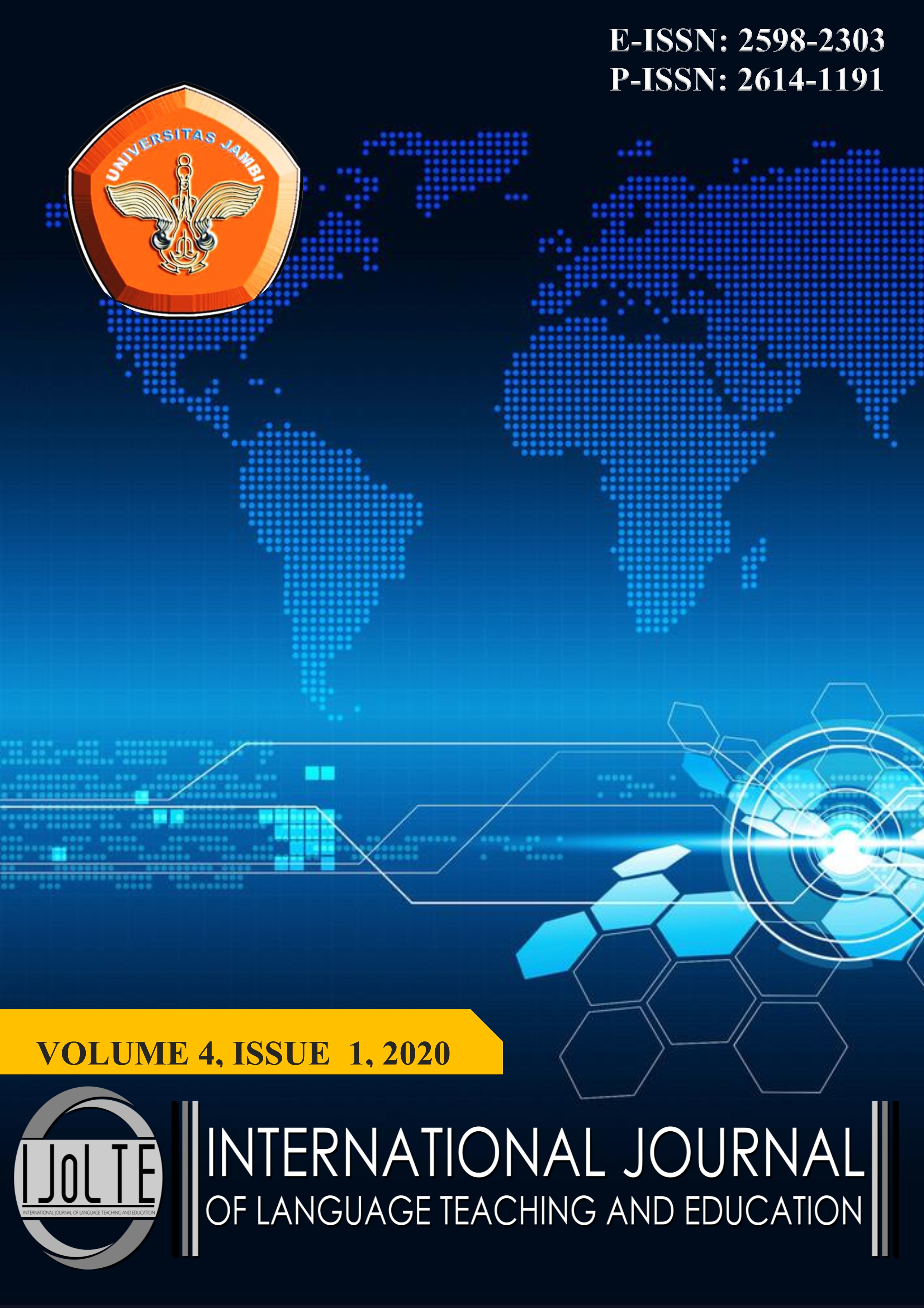Utilizing Facebook Groups in Teaching English as Foreign Language: Indonesian EFL Teachers’ Voices
DOI:
https://doi.org/10.22437/ijolte.v4i1.10197Keywords:
Teacher-learning, social media, facebook groups, knowledge base of language teachingAbstract
In the era of 4.0, social media has become an integral part of everyday life, including for the purpose of teacher learning. One of the means of social media that has been used for enhancing teachers’ independent professionalism is Facebook Groups related with their teaching professions. The present qualitative study aims at (i) exploring English as A Foreign Language (EFL) teachers’ experiences in utilizing Facebook Groups for their teacher learning and (ii) finding out the benefits of teachers’ involvement in teaching-related Facebook Groups. In collecting the data for the present case study, in-depth interviews were done with two teachers, one novice teacher and one experienced teacher. The findings and discussions indicated that teachers use Facebook groups to enhance their professionalism, despite they tend to start refraining from utilizing the groups due to uncomfortable atmosphere that Facebook now offers. Additionally there are three benefits found of joining Facebook groups, namely their enriched information on content knowledge, knowledge of curriculum and knowledge of educational contexts. In the current time where teachers need to shift into distance learning in the timely fashion, whereas many subjects need to be comprehended quickly.
Downloads
Downloads
Published
How to Cite
Issue
Section
License
The Authors submitting a manuscript do so on the understanding that if accepted for publication, copyright of the article shall be assigned to International Journal of Language Teaching and Education (IJoLTe) and Magister Program of English Education Department, Universitas Jambi as publisher of the journal. Copyright encompasses rights to reproduce and deliver the article in all form and media, including reprints, photographs, microfilms, and any other similar reproductions, as well as translations.
IJoLTe keep the rights to articles that have been published. And, the authors are permitted to disseminate published article by sharing the link of IJoLTe' website. Authors are allowed to use their works for any purposes deemed necessary without written permission from IJoLTe with an acknowledgement of initial publication in this journal.
IJoLTe and Magister Program of English Education Department, Universitas Jambi, and the Editors make every effort to ensure that no wrong or misleading data, opinions or statements be published in the journal. In any way, the contents of the articles and advertisements published in IJoLTe are the sole and responsibility of their respective authors and advertisers.
If the article was jointly prepared by more than one author, any authors who submitting the manuscript warrants that he/she has been authorized by all co-authors to be agreed on this copyright and license notice (agreement) on their behalf, and agrees to inform his/her co-authors of the terms of this policy. IJoLTe will not be held liable for anything that may arise due to the author(s) internal dispute. IJoLTe will only communicate with the corresponding author.
By submitting the article/manuscript to this journal, the authors agree with this policy and consciously agree that IJoLTe does not provide royalties or other fees to the authors for their published articles. By agreeing this policy, IJoLTe ensures that published articles are publicly accessible and will be free of charge for the readers. No specific document sign-off is required.
Users of this website will be licensed to use materials from this website following the Creative Commons Attribution 4.0 International License. Please use the materials accordingly
You are free to:
- Share — copy and redistribute the material in any medium or format
- Adapt — remix, transform, and build upon the material for any purpose, even commercially.
- The licensor cannot revoke these freedoms as long as you follow the license terms.








1.png)
